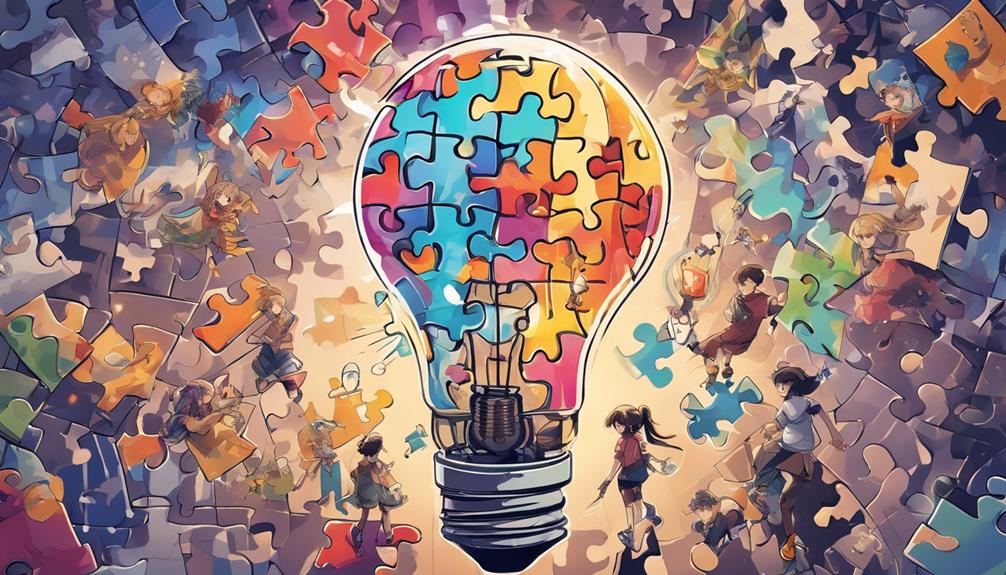By directing random generation, you're not just creating teams; you're nurturing innovation. This approach utilizes algorithms to guarantee a equitable distribution of skills and preferences, forming diverse and well-rounded groups. You eliminate the presence of bias, allowing for an impartial mix of strengths. Diversity isn't just a buzzword—it's your team's secret weapon for pioneering problem-solving. With each member contributing unique strengths, you promote adaptability and collaboration, enhancing overall performance. Maneuvering this with advanced tools maximizes potential, striking a balance between randomness and strategic consideration. You'll delve into fresh perspectives and promote a culture of continuous improvement. Revealing the full benefits takes insight, and there's more to discover.
Understanding Random Team Generators
To effectively harness the power of random group generators, it's essential to understand how these algorithms function and the customization options they offer to meet specific needs. At their core, random group generators utilize sophisticated algorithms to generate random teams. This method guarantees a random distribution of individuals, providing a fair and unbiased way to divide people into teams. Whether you're organizing a classroom activity, a sports event, or a corporate team-building exercise, these tools can effortlessly and impartially form groups.
What sets these generators apart is their ability to be tailored. You're not just throwing names into a hat; you can customize the process to take into account specific factors, such as player skill levels or individual preferences. This flexibility allows for a more nuanced approach to team formation, ensuring that teams can be balanced or aligned with the event's objectives.
Moreover, some generators offer the option to select team leaders or captains, adding another layer of strategy to team creation. This feature can be particularly useful in scenarios where leadership dynamics are critical. By understanding these capabilities, you're better equipped to leverage random team generators to their full potential, creating diverse and balanced teams that meet your specific requirements.
Crafting Diverse Teams
Crafting diverse teams demands a thoughtful consideration of the unique blend of skills, backgrounds, and experiences each member brings, ensuring a dynamic and balanced group capable of innovative problem-solving. When you harness the power of diversity, you're not just assembling random groups; you're strategically building a powerhouse of varied expertise and perspectives. This is where a random team generator can be a game-changer. It doesn't just throw team members together; it fosters a mix that mightn't have been considered otherwise, challenging the status quo and encouraging fresh ideas.
Diverse teams excel because they bring together individuals who approach problems from different angles. This diversity leads to enhanced creativity, more robust problem-solving, and groundbreaking innovation. Additionally, building such teams isn't just about improving outcomes; it's about fostering a culture of inclusion, understanding, and collaboration. By embracing diversity in team composition, you're not only making better decisions but also enhancing overall team performance.
Utilizing Randomness in Team-Building

Harnessing randomness in team-building strategies eliminates bias and fosters a more equitable environment for innovation and collaboration. When you utilize randomness in forming teams, you're actively promoting fairness and diversity. This approach prevents the pitfalls of bias and favoritism, ensuring that all members have equal opportunities to contribute and thrive. It's a method that guarantees diversity isn't just an ideal, but a practiced reality within your organization.
Implementing randomness in team assignments encourages collaboration and adaptability among team members. It pushes individuals out of their comfort zones, compelling them to work with colleagues they mightn't have chosen themselves. This not only enhances team dynamics but also adds an element of excitement and unpredictability to the team formation process. You'll find that such diversity in perspectives and skill sets naturally drives creativity and innovation.
Maximizing Team Potential
Building on the foundation of randomness in team formation, it's vital to focus on strategies that maximize team potential by leveraging diverse skills and fostering effective communication. When you randomly assemble a group of people, the inherent diversity in thought, experience, and skill sets can become your team's greatest asset. To harness this, you must encourage each member to contribute their unique strengths, thereby creating a synergy where the collective output is greater than the sum of its parts.
Effective communication is the glue that holds this diverse group together. It guarantees that ideas flow freely, misunderstandings are minimized, and every team member feels heard and valued. This not only boosts morale but also drives innovation as different perspectives are shared and debated.
Encouraging positive dynamics within the team is essential. A supportive and cohesive environment allows for risks to be taken without fear of failure, fostering a culture of continuous improvement and learning. Embracing diversity in all its forms not only enriches the team's problem-solving toolkit but also ensures that solutions are well-rounded and innovative.
Navigating Challenges in Random Generation

While implementing a random team generator, you'll face several challenges that require thoughtful navigation and strategic planning. Sorting and assigning players based on KD ratios is just the beginning. You must explore deeper into organizing player information effectively. Utilizing nested arrays or objects lets you keep data structured and accessible, a critical step when you aim to build a random team that's balanced and fair.
Randomly assigning teams guarantees every player gets a fair shot, promoting a balanced team dynamic that's essential for competitive play. But here's where it gets tricky. Efficient code implementation isn't just about making it work; it's about planning for scalability. Your generator must adapt as the community grows and changes. This is where seeking community input becomes invaluable. Listening to people who use the generator, understanding their needs, and integrating best practices can greatly enhance its functionality and usability.
Frequently Asked Questions
What Is Random Team Generator?
A random team generator is a tool that guarantees fairness, boosts creativity, and encourages diversity by using an algorithm. It's perfect for you if you're seeking freedom from bias and a fresh approach to teamwork.
How Do You Randomly Assign People to Groups in Excel?
To immerse people to groups in Excel, plunge into a sea of Excel formulas. Master custom randomization techniques and understand the importance of data validation. The shuffle function's application becomes your liberation in organizing chaos.
How Do You Randomly Assign Participants to Groups?
To randomly assign participants to groups, you'll explore team dynamics and guarantee fairness. Randomization benefits include enhanced group diversity importance, fostering a deeper understanding and appreciation for varied strengths within a team.
How Do I Randomize a Team in Excel?
To randomize a team in Excel, you'll mix Excel formula tips with custom random functions. Start by applying a shuffle algorithm and data validation usage to ensure fairness. This approach guarantees every team's unique composition.
Conclusion
In the tapestry of team-building, random generators are the loom weaving together strands of diversity and creativity. By embracing this tool, you're not just rolling the dice; you're opening a treasure chest of potential.
Yes, steering through its challenges requires a keen eye and an open mind, but the rewards—innovative solutions, unexpected synergies—are priceless. Let randomness light the spark, and watch as your uniquely crafted team blazes a trail to success.



